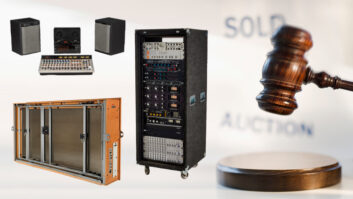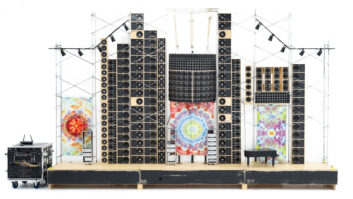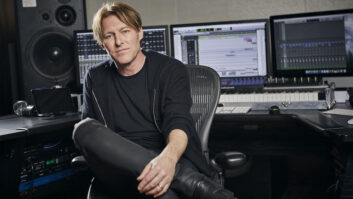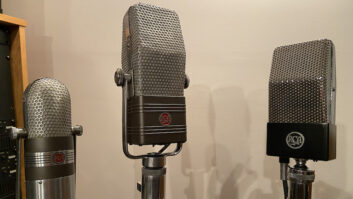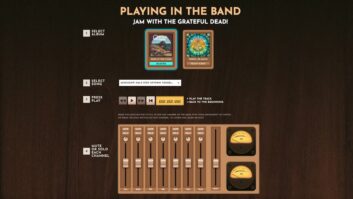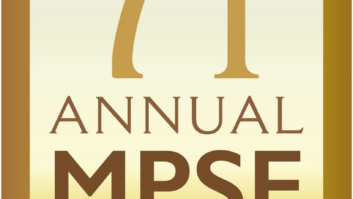Noted engineer/producer Jerry Finn—who worked with Blink-182, Morrissey, Rancid, Green Day, Bad Religion, Sparta, AFI, the Offspring and may others—passed away on August 21.
Seattle-based engineer Matt Shaw wrote us the following:
Jerry Finn revolutionized the pop-punk genre as far as engineering prowess and emotional integrity, but he was also an amazingly cool, funny, knowledgeable and generous guy. He was taken off life support in late August following a brain hemorrhage. He was 39.
Jerry went to Dick Grove School of Music and met a teacher/studio manager there named Candace Stewart. He then lived in Candace’s house and soon became a runner at Music Grinder, where he worked on a remodel in the early ’90s. He would go get $1.50 Taco Bell and go back for eight more hours for no pay. He was hired after that as second [engineer], I believe. He then moved to Devonshire, where he met Rob Cavallo.
His big break was remixing Dookie for Green Day, and his career took off after that. We had him up in Seattle for a week to work on a record here after Dookie was mixed but before it was released. We knew his price would go up after that! Great engineer then, a huge electronic-phase guy—I believe he got the Galaxy Audio “Cricket” tool from working with Ed Cherney. He loved Ed’s Bonnie Raitt and Rolling Stones recordings. Finn’s tones were just amazingly pristine, and his mic technique for many things was amazing. Check out these photos of Blink-182 at Conway in November 2003 on Royer Labs’ Website.
I know he loved the Neve 80 Series and working at Conway. I remember him mixing in Seattle on an SSL and had a wood hammer on which he had taped “SSL Adjustment Tool”. Typical Jerry. Loved his Tannoy Red Series speakers and had them reconditioned all the time.
He had more than 100 guitars but only used 10 to 12 of them on sessions; the rest he collected. He also had great racks of amazingly cool gear. His drum tech was Mike Fasano, and Sean O’ Dwyer, Ryan Hewitt and Joe McGrath were his main engineers through the years.
I met him in 1993 when he was second engineer, and as his career sky-rocketed we stayed in touch. He was never too busy to talk about the music biz and share all his latest engineering tips to a nobody guy from Seattle, and he kindly let me hang at his sessions when in town. A real mentor. He would talk for hours about music and engineering to politics and home remodeling: a very, very sharp dude. Not only do I believe his work had the deepest integrity and skill level, he was super funny, bright and quite the good human. He was a very good friend to someone who could only learn from him professionally, but more than that, he was self deprecating, humble, and simply a good friend.
I love you and will miss you brother. Thanks for all you did.
Another remembrance comes from a Los Angeles-based engineer/producer best known for his work with the Rolling Stones, Bonnie Raitt and countless others—Ed Cherney:
I first got to know Jerry Finn when he was working as a staff assistant engineer at Conway Studios. We hadn’t worked together yet, but we crossed paths a lot and became friendly. We had a mutual friend that was his roommate; she told me about him and she just adored him, and that was good enough for me.
I immediately liked him when we met. He was funny, very bright, very warm and very hungry for knowledge. I was working on some project at Conway and they put Jerry on as my assistant. Jerry had just mixed Green Day and hit it out of the park, blowing everybody away. They loved his mixes—the album was a huge smash, and it also made Jerry the great hope of every assistant engineer everywhere. He was a natural. From that moment on, he was also “made”. You know, in that place when your talents get noticed and your phone starts to ring and people are willing to pay you to work on their music. I was very happy for him and from experience knew what a wonderful time in life that can be. He was excited and happy, and really looking forward to getting out there.
When he was the assistant engineer for me, right when all that was starting to happen for him, I felt some concern that he would be bored and miserable assisting (it may have been his last gig as an assistant), and gave him the opportunity to opt out. Well, he easily could have and I would not have blamed him if he did, but he didn’t. It was only for a week or so, but he was a great assistant and we also had a wonderful, fun time. I did offer him some advice—unsolicited, I am sure—that it was really, really important to try and save some money when you were hot and in demand, as there are no guarantees that it will last.
Well, Jerry went on and continued to be very successful, and I followed his career, bought the records he made, and was proud and happy for him and for the great work he was doing. We would run into each other every now and then, and he would pull me aside. Shaking his head he would tell me that he had been remiss, and was really not saving his money—and we would laugh because he did say how much he was enjoying spending it on things he loved. Jerry never lost his humor, or his humility. We are all that much poorer by his passing, but certainly better off that he was here.
I would like to add one thing. This business conspires to take your health—long hours, poor diet, little time for exercise (and other things that shall remain nameless). No matter how hard it may seem now, you owe it to yourselves and to your friends and family to stay healthy. That means getting check ups and health screenings, dealing with high blood pressure, diabetes and the many other health problems that plague music professionals. It is imperative that we take time to take care of ourselves, and sometimes we just have to demand the time to do it.
Peace out,
Ed C
We welcome your stories on Jerry Finn. Please email Matt Gallagher at [email protected] and we’ll put them all together on the Web. Donation information will be forthcoming.
